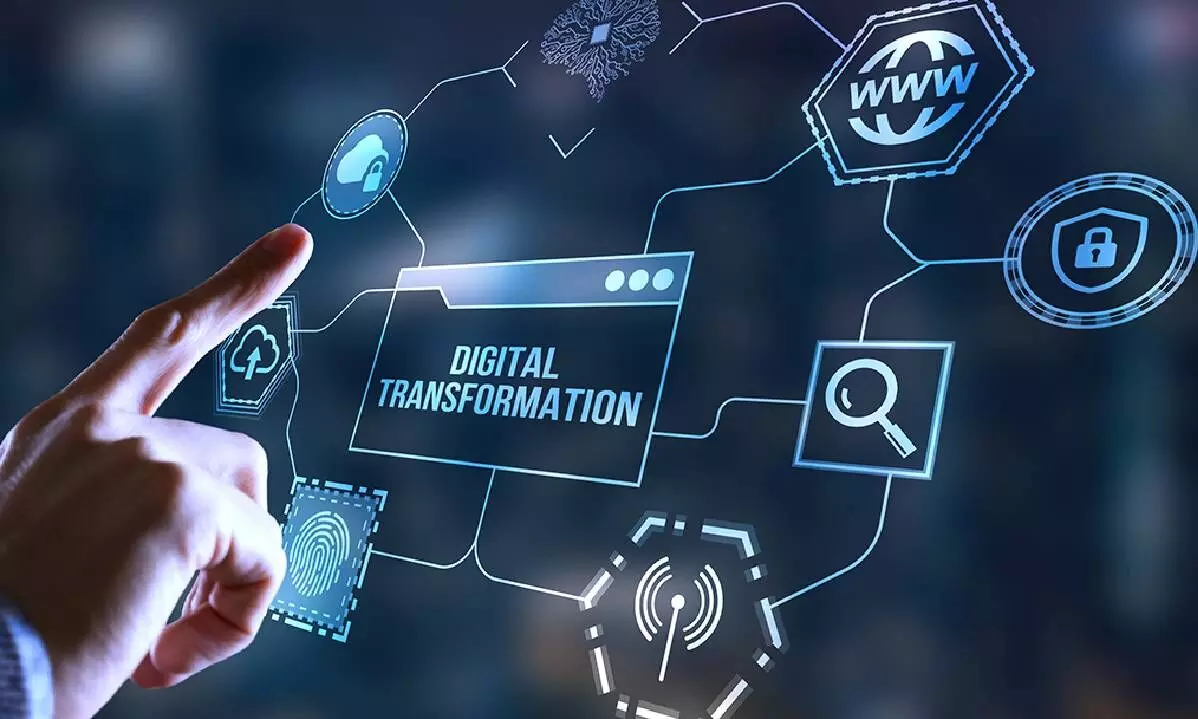Digital innovations will drive out everyday necessities in the next 20 years
Autonomous cars, moving at a constant speed, can reduce traffic woes and road accidents
image for illustrative purpose

The world is changing at an exponential rate, so much so that the gap between generations' experience of the world is growing wider and wider. There are already so many things millennials will never understand about pre-internet life, but they are about to feel the same way as things thought to be mainstays of today will be forgotten by tomorrow.
Tech-based security has been on the rise for years now, and with the advent of key fobs, keyless ignition systems, facial/fingerprint recognition, and electronic keypad locks, there’s little reason for metal keys to stick around.
Pay phones were once on almost every big-city block, but they’ve been in steady decline with the advent of cell phones. They still come in handy if your phone dies or you don’t have the service. But the ones standing have often suffered vandalism and neglect.
Streaming platforms have so radically changed our experience of TV, what with it being on demand and offering a much wider variety than cable. No more searching between the couch cushions, as many believe voice commands and smart phone control will make those plastic controllers obsolete in the near future.
Everyone knows the hassles of forgetting your password but thankfully this could become a thing of the past. New password-less technologies, such as cross-device verification, are starting to pop up and there’ll be greater protection of personal data while also ensuring you don’t need to remember all your different passwords.
Wireless charging is untangling consumers’ frustration already, and there are devices upon which you can simply place your phone and it will receive a charge. Now imagine charging desk platforms that juice up your laptop, speakers and other devices.
The chalkboard was once revolutionary for its reusability. But then came white boards, which didn’t involve so much dust, and now there are smart boards increasingly being used in classrooms as they can be saved and shared and they offer many more multimedia tools.
While some still cling to the reliability of a physical hard drive, and though storage space remains a big factor in people’s choice of computer or phone, cloud-based storage is slowly taking center stage.
Specifically talking about the plastic you use to make your purchases, credit and debit cards are being replaced by digital payments through your phone or smart watch. Digital payments are faster, more convenient, and more secure with built-in authentication, monitoring, and data encryption.
Cash had already started its decline with card payments, but with digital transactions on phones and smart watches, the germ-covered coins and bills don’t stand a chance, especially in a post-pandemic world.
Though their safety has been hotly debated, it’s hard to deny that autonomous vehicles are well on their way, and following in the path of Tesla are Ford, Volvo, and BMW, to name a few. It's possible that in our lifetime drivers—from regular folk to professionals like taxi and truck drivers—will be rendered useless. On the upside, with self-driving cars the likelihood of running into a traffic jam will be significantly decreased. Humans are the leading cause of traffic accidents, so the theory goes that autonomous cars, which move continuously and at a constant speed, could eliminate traffic and perhaps even a majority of accidents.
There are two factors contributing to the disappearance of the clutch as we know it: firstly, automatic cars are becoming much more efficient, not to mention they’re easier to drive. Secondly, “automated” manual shifts are taking off in which electronics control the clutch instead of your left foot,
The parking meter, a seeming fixture in many city centers, will be replaced by license plate recognition technology and an automatic charge to your credit card. Electronic or digital signatures are becoming the norm, most even replicating the experience of writing your signature but without requiring wet ink and paper. This increased during the pandemic as people could not meet in person to sign documents. On that count, e-signatures are here to stay.
With touch-screen kiosks allowing customers to place and pay for their orders without needing any help, fast-food chains are already cutting their cashier staff. That sort of automation is also making its way into the kitchen, where robotic devices will be able to flip burgers, fry fries, and wash dishes. The employees will still be there, but mostly in supervisor or maintenance roles.
With so many technologies getting outdated as digital technology evolves, whether it will be a boon or bane remains to be seen.

